
Procurement Management: How to Become a Procurement Manager, Skills and Salaries
9 mins read
Procurement management refers to the systematic approach to obtaining the necessary resources, which includes everything from raw materials to services. It plays a vital role in ensuring that companies maintain operational efficiency and cost-effectiveness. By effectively managing procurement, businesses can reduce expenses, enhance productivity, and foster strong supplier relationships, which are necessary for long-term success
This comprehensive article explores the key aspects of procurement management, including the role of a procurement manager, their responsibilities, required skills, salary outlook, and the path to becoming one.
Who is a Procurement Manager?
A procurement manager oversees the purchasing process within an organization, ensuring that the best quality products and services are acquired at the most favorable prices. This role is important across various industries, including manufacturing, healthcare, and construction. Procurement managers act as strategic liaisons between their organizations and suppliers, helping to optimize costs and mitigate risks.
Procurement Manager Role and Responsibilities
The primary responsibilities of a procurement manager include:
Developing Procurement Strategies: Crafting strategies that align with organizational goals to ensure efficient procurement processes.
Supplier Management: Identifying, negotiating, and managing relationships with suppliers to secure favorable terms and maintain quality standards.
Contract Negotiation: Negotiating contracts to achieve the best possible pricing and terms.
Inventory Management: Monitoring inventory levels to ensure that the organization has the necessary supplies without overstocking.
Cost-Saving Initiatives: Identifying opportunities for cost reduction without compromising quality.
Cross-Department Collaboration: Working with various departments to understand their procurement needs and align them with organizational objectives.
Procurement Manager Skills and Qualifications
To succeed as a procurement manager, individuals should possess a diverse skill set, including:
Negotiation Skills: Essential for securing favorable contract terms.
Analytical Skills: Ability to analyze market trends, supplier performance, and procurement data.
Communication Skills: Strong interpersonal skills to collaborate effectively with internal stakeholders and suppliers.
Technical Proficiency: Familiarity with procurement software and digital tools that simplifies purchasing processes.
Risk Management: Ability to identify and mitigate potential risks associated with supplier relationships and procurement activities.
Education and Training
A bachelor’s degree in business, supply chain management, or a related field is often required. A master’s degree (MBA) can enhance prospects for senior roles. Many also pursue certifications such as:
1. Associate Professional in Supply Management (APSM)
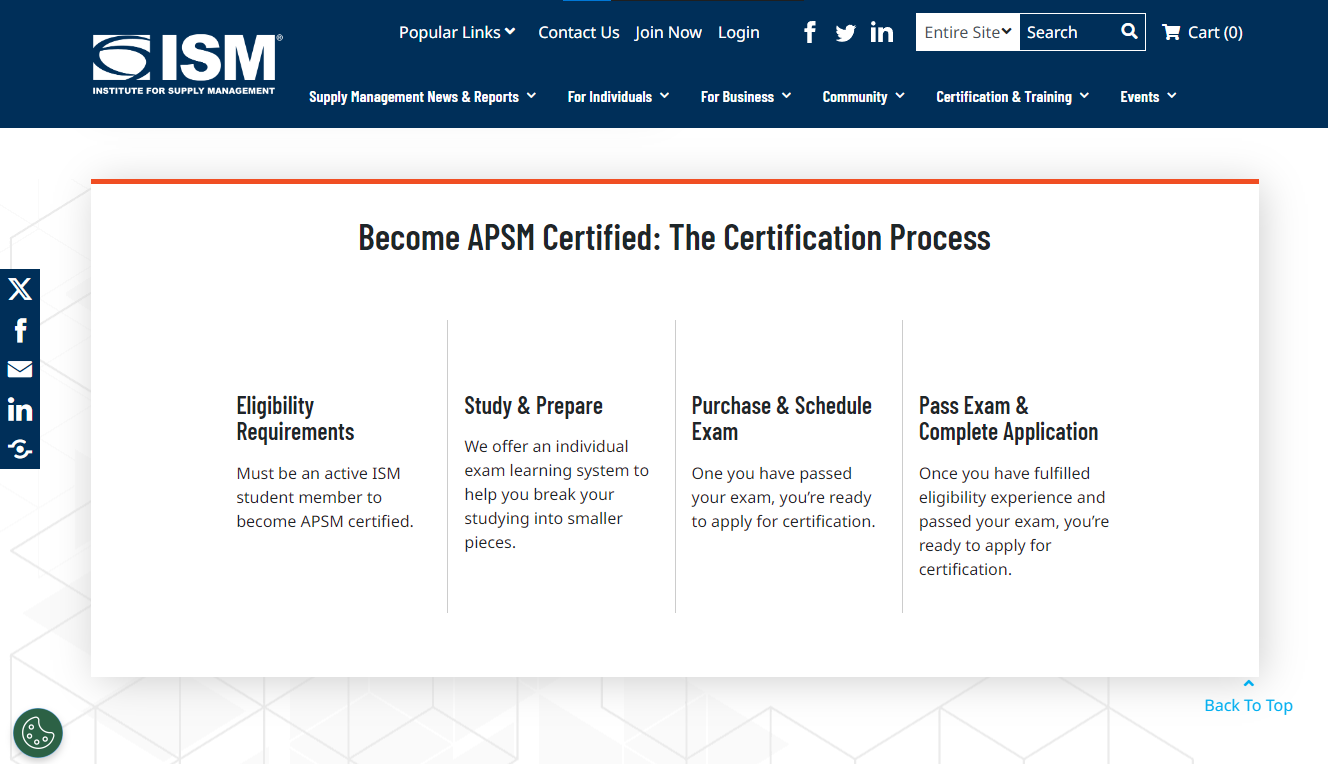
Certification Provider: Institute for Supply Management (ISM)
Best For: Students and early-career professionals looking to establish a foundation in supply management.
Description: The APSM certification is aimed at active ISM student members, providing a pathway towards the CPSM certification. It emphasizes core competencies in supply management, including sourcing, negotiation, and supplier relationship management. The certification is valid for five years.
Time to Complete: Candidates typically take 3-6 months to prepare for the Supply Management Core Exam, which is required for certification.
You can get the certification here.
2. Certified Professional in Supply Management (CPSM)
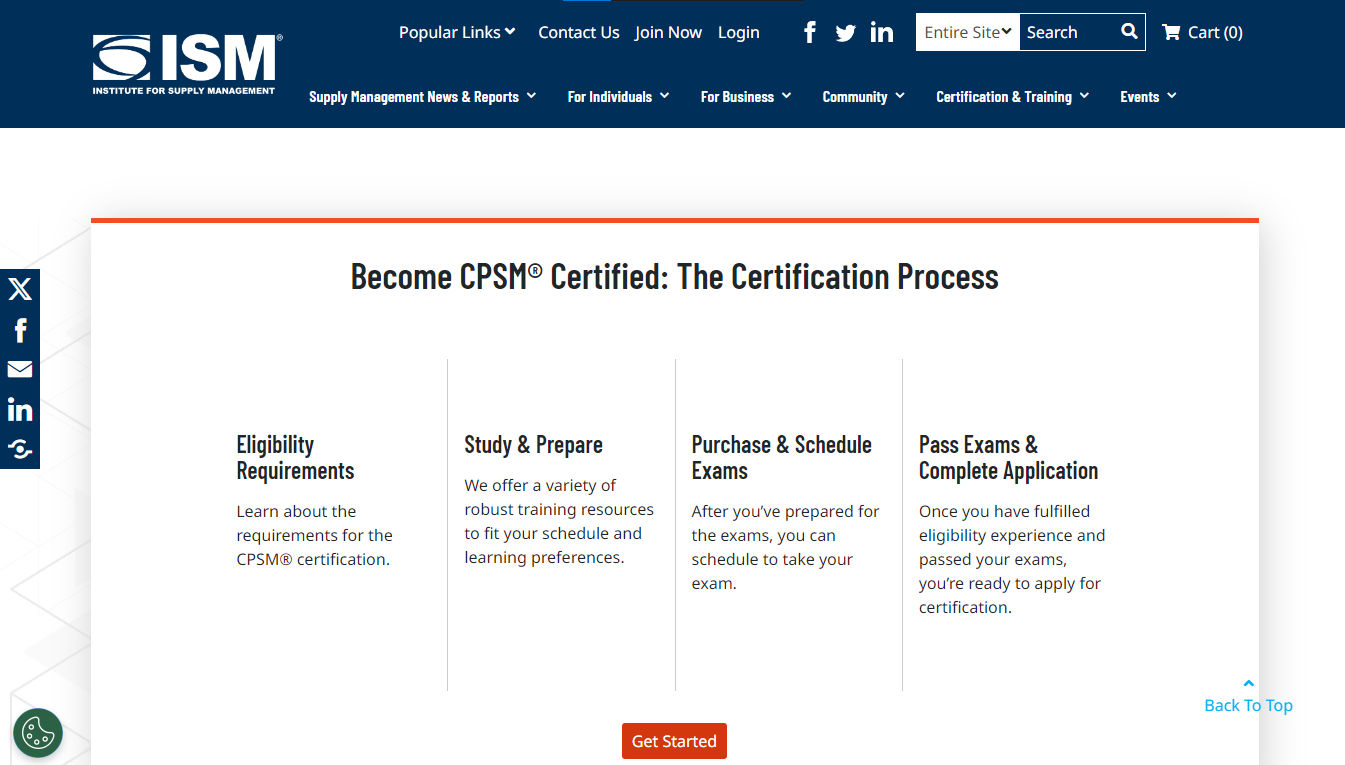
Certification Provider: Institute for Supply Management (ISM)
Best For: Professionals looking to advance their careers in supply management and procurement.
Description: The CPSM certification is a globally recognized credential that demonstrates a professional's expertise in supply management, including procurement, sourcing, and supplier relationship management. It covers strategic sourcing, supplier negotiations, and risk management.
Time to Complete: Typically requires 3-6 months of study to prepare for the exam, which consists of three parts.
You can get the certification here.
3. Certified Supply Chain Professional (CSCP)
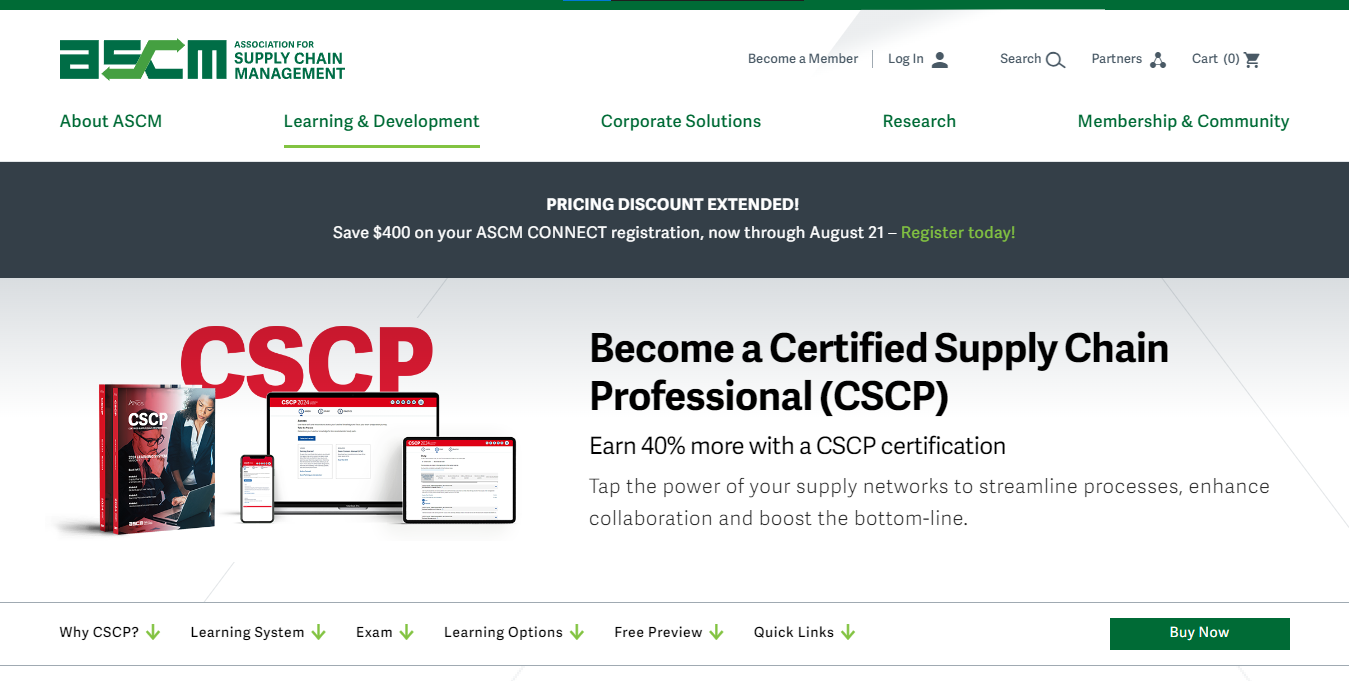
Certification Provider: Association for Supply Chain Management (ASCM)
Best For: Supply chain professionals seeking to enhance their knowledge of supply chain management principles.
Description: The CSCP certification provides a comprehensive understanding of supply chain management, including procurement, production, distribution, and logistics. It emphasizes the importance of aligning supply chain strategies with business goals.
Time to Complete: Candidates usually take 3-6 months to prepare for the exam.
You can get the certification here.
4. Chartered Institute of Procurement & Supply (CIPS) Qualifications
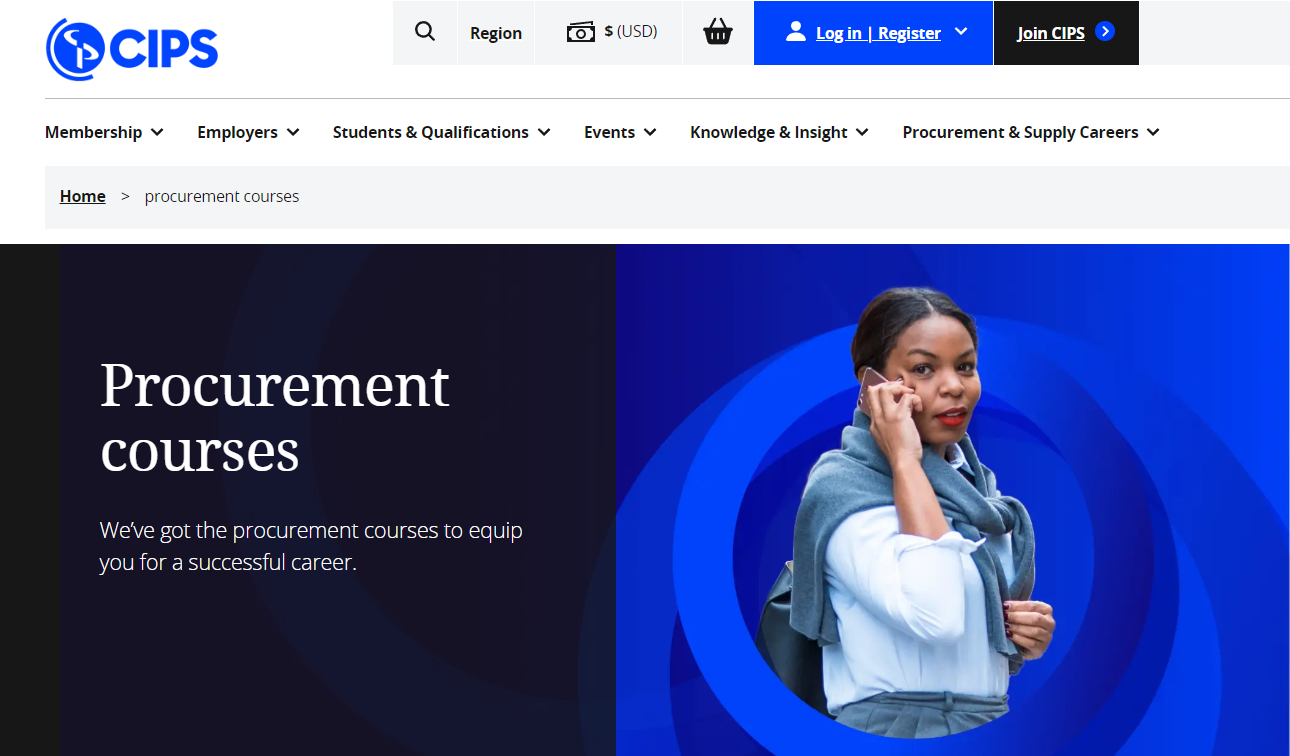
Certification Provider: Chartered Institute of Procurement & Supply (CIPS)
Best For: Procurement professionals looking for a recognized qualification in procurement and supply management.
Description: CIPS offers various levels of qualifications, from Certificate Level to Diploma and Advanced Diploma. These qualifications cover procurement principles, ethical sourcing, and strategic procurement practices.
Time to Complete: The time varies based on the level, but it typically takes 1-2 years to complete the full diploma.
You can get the certification here.
5. Certified in Production and Inventory Management (CPIM)
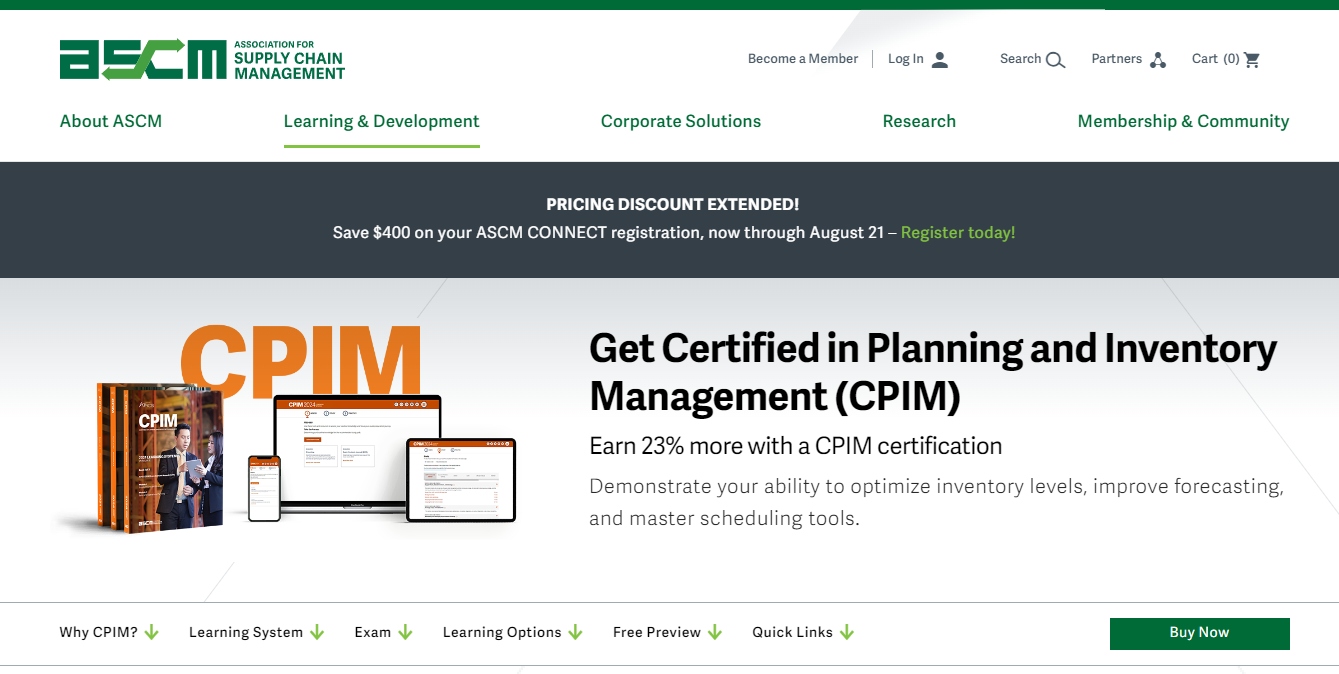
Certification Provider: Association for Supply Chain Management + (APICS)
Best For: Professionals involved in production and inventory management.
Description: The CPIM certification focuses on production and inventory management, covering topics such as demand management, procurement, and supplier planning. It is ideal for those looking to optimize operations and improve supply chain efficiency.
Time to Complete: On average, students are asked to spend 100 hours of study time to pass each certification exam.
You can get the certification here.
6. Certified Professional in Supplier Diversity (CPSD)
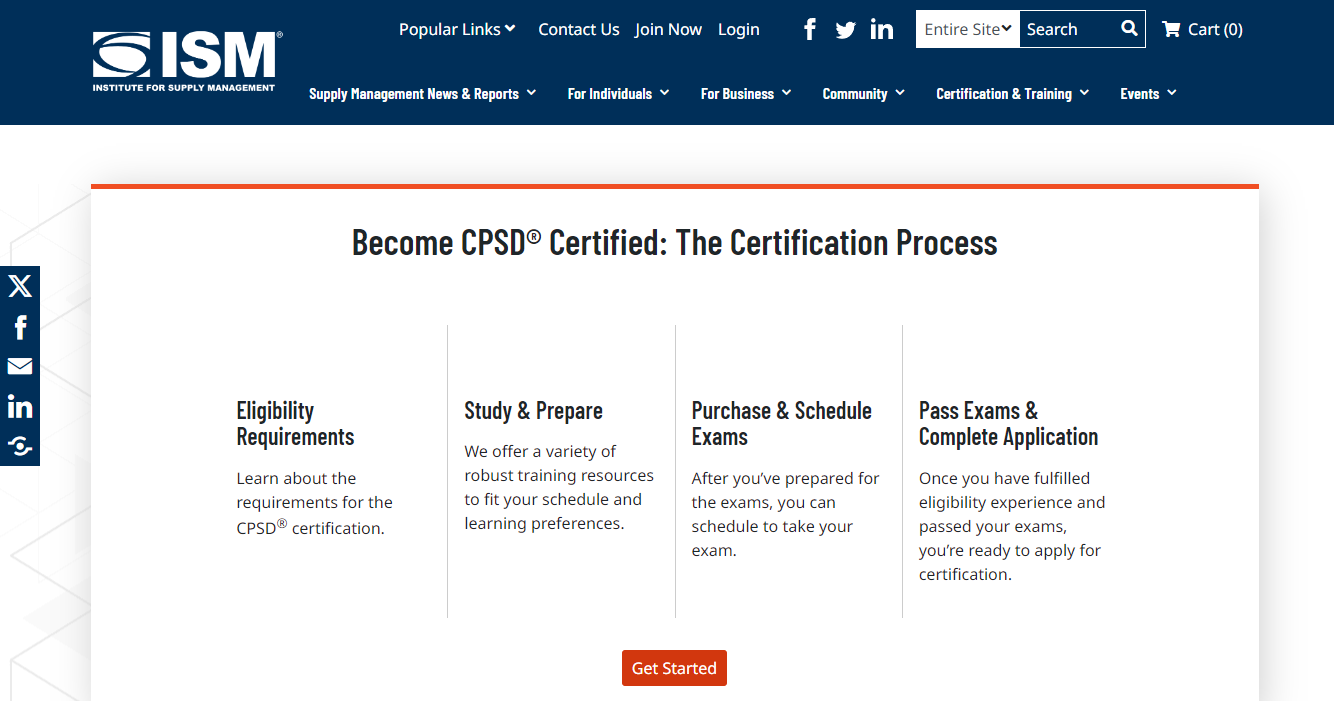
Certification Provider: Institute for Supply Management (ISM)
Best For: Professionals focusing on supplier diversity initiatives within organizations.
Description: The CPSD certification is designed for supply professionals who demonstrate knowledge and expertise in supplier diversity. It equips candidates with the skills to implement effective supplier diversity programs that enhance organizational performance and innovation.
Time to Complete: Candidates typically require 3-6 months to prepare for the two-part exam, which includes the Supply Management Core and Essentials in Supplier Diversity.
You can get the certification here.
Other Qualifications and Certifications include:
Obtaining certifications such as Certified Professional in Supply Management (CPSM), Certified Supply Chain Professional (CSCP), or Chartered Institute of Procurement & Supply (CIPS) can significantly boost career advancement opportunities.
Procurement Manager Salary
The salary for procurement managers varies based on location, industry, and experience.
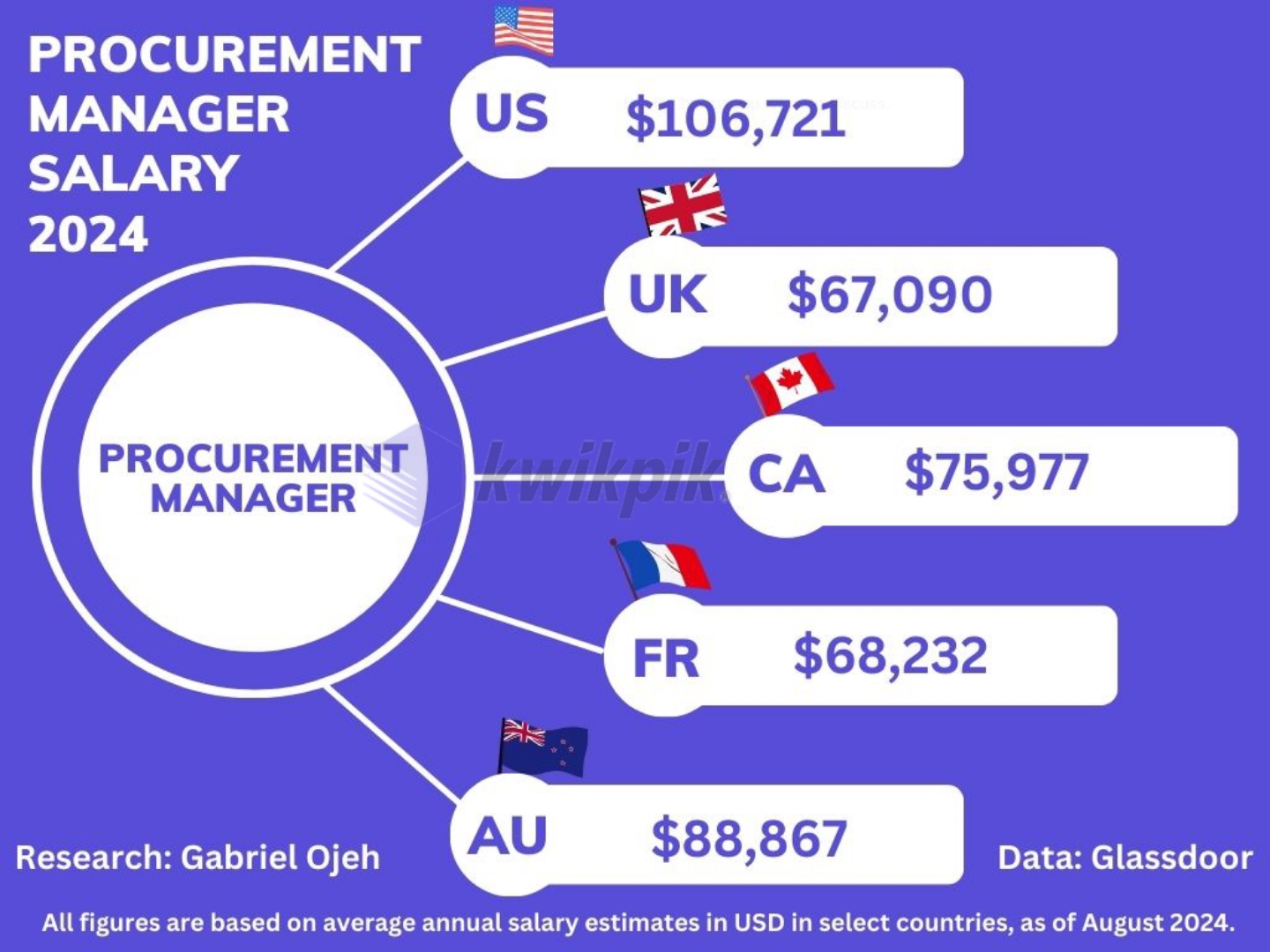
How to Become a Procurement Manager
To pursue a career as a procurement manager, follow these steps:
Obtain a Relevant Degree: Start with a bachelor’s degree in business, supply chain management, or a related field.
Gain Experience: Work in entry-level procurement roles or internships to gain practical experience.
Develop Necessary Skills: Focus on building negotiation, analytical, and communication skills.
Pursue Certifications: Enhance your qualifications with relevant certifications to stand out in the job market.
Network: Connect with industry professionals to learn about job opportunities and trends.
Procurement Manager Career Path
The career path for procurement managers typically follows a progression from entry-level to senior roles. Common titles include:
| Entry-Level Positions | Mid-Level Positions | Senior-Level Positions |
| Buyer | Procurement Co-ordinator | Procurement Director |
| Procurement Analyst | Category Manager | Chief Procurement Officer (CPO) |
| Procurement Associate | Strategic Sourcing Manager | __________________________________ |
Entry-Level Positions
#1 - Trainee Buyer/Analyst
Role Overview: This is typically the starting point for individuals entering the procurement field. Trainee buyers or analysts assist in researching purchasing options, strategies, and supplier communications.
Responsibilities: Tasks may include compiling data for reports, searching for new vendors, collecting quotes, and supporting the procurement team in various capacities.
Skills Needed: Strong analytical abilities, organizational skills, and basic knowledge of sales and purchasing.
#2 - Procurement Assistant/Associate
Role Overview: In this role, individuals provide administrative support to procurement teams, handling documentation and communications with suppliers.
Responsibilities: Duties often involve processing purchase orders, maintaining supplier databases, and assisting in contract management.
Skills Needed: Attention to detail, communication skills, and proficiency in procurement software.
Mid-Level Positions
#1 - Procurement Co-ordinator/Manager
Role Overview: After gaining experience, individuals can advance to procurement manager roles, where they oversee procurement processes and supplier relationships.
Responsibilities: This includes developing procurement strategies, negotiating contracts, managing supplier performance, and collaborating with other departments to align procurement with organizational goals.
Skills Needed: Strong negotiation, analytical, and project management skills, along with the ability to communicate effectively across departments.
#2 - Category Manager
Role Overview: Category managers focus on specific categories of products or services and develop strategies to optimize procurement for those categories.
Responsibilities: They analyze market trends, manage supplier relationships, and implement cost-saving initiatives within their category.
Skills Needed: In-depth knowledge of the specific category, strong analytical skills, and strategic thinking.
#3 - Strategic Sourcing Manager
Role Overview: This role focuses on developing and implementing sourcing strategies to optimize the procurement process and reduce costs.
Responsibilities: Duties include conducting market research, managing supplier negotiations, and ensuring alignment with business objectives.
Skills Needed: Expertise in sourcing strategies, negotiation skills, and the ability to analyze data effectively.
Senior-Level Positions
#1 - Director of Procurement
Role Overview: Directors oversee the entire procurement department and are responsible for setting strategic direction and ensuring alignment with organizational goals.
Responsibilities: They manage procurement teams, develop policies and procedures, and report on procurement performance to senior management.
Skills Needed: Leadership, strategic planning, and advanced negotiation skills.
#2 - Chief Procurement Officer (CPO)
Role Overview: The CPO is an executive-level position responsible for the overall procurement strategy and operations within an organization.
Responsibilities: This includes overseeing all procurement activities, managing supplier relationships at the highest level, and ensuring compliance with regulations and policies.
Skills Needed: Exceptional leadership abilities, strategic vision, and extensive experience in procurement and supply chain management.
Summary
The procurement manager career path offers a structured progression from entry-level to senior executive positions. Building relationships within the industry through networking can provide valuable insights and opportunities for career advancement. Also, gaining relevant experience through internships, entry-level positions, and progressively responsible roles is important for moving up the procurement career ladder.
Why Use Kwikpik for Your Procurement Services?
If you're a retailer, grocery store, fast-moving consumer goods (FMCGs), or small shop owner looking for reliable, on-demand procurement services, look no further than Kwikpik! Here at Kwikpik, we offer two solutions:
Personalized Procurement: Simply provide us with your requirements, and our dedicated team will help you source the goods you need.
Affordable Sourcing: Our research team works tirelessly to identify the best prices and suppliers, ensuring you get high-quality products at competitive rates.
If you're a retailer in need of dependable procurement services, reach out to Kwikpik today and discover how we can simplify your supply chain and enhance your business operations.
Join Kwikpik Today!
Are you interested in a career in procurement? Join Kwikpik as an intern and gain valuable experience in the field. Send us an Email by clicking here.
Don't miss out - partner with Kwikpik and take your business to the next level!


